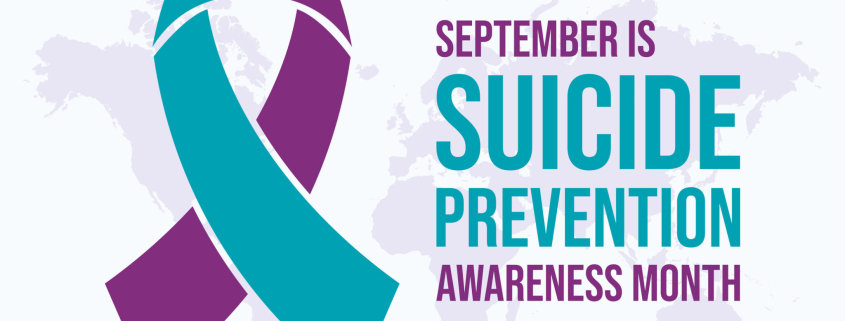
September: Shining a Light on Suicide Awareness
In today’s world, people are realizing the impact and importance of open and honest conversations about mental health. September emerges as a poignant reminder of the importance of addressing one of the most pressing global issues – suicide. September is Suicide Awareness Month and is dedicated to raising awareness about suicide, its devastating impact, and the vital role each of us can play in preventing it.
Suicide Awareness Statistics
In order to spread awareness, it’s essential to grasp the gravity and impact that suicide has. Suicide is a global public health crisis that affects people of all ages, genders, and backgrounds.
Prevalence
According to the World Health Organization (WHO), nearly 800,000 people die by suicide worldwide every year, making it the 17th leading cause of death. For every suicide, there are many more attempts, with estimates suggesting that for each successful suicide, there may be 20 or more attempts.
Youth and Teens
Suicide is a leading cause of death among young people. In the United States, suicide is the second leading cause of death among individuals aged 10-34.
Gender Disparities
While men are more likely to die by suicide, women are more likely to attempt it. Men are often less likely to seek help or talk about their feelings, contributing to a higher rate of completed suicides.
Mental Health Connection
A significant percentage of people who die by suicide have a diagnosable mental health condition. It’s crucial to emphasize that seeking help for mental health issues can make a significant difference in suicide prevention.
Impact on Communities
Suicide doesn’t just affect individuals; it leaves a profound impact on families, friends, and communities. The ripple effect of a single suicide can be devastating.
Breaking the Silence: Suicide Prevention Tips
The good news is that suicide is preventable. By fostering awareness, providing support, and knowing how to respond, each of us can contribute to saving lives. Here are some practical suicide prevention tips:
Educate Yourself
Understanding the signs and risk factors associated with suicide is the first step in prevention. Learn to recognize the warning signs, which may include withdrawal from friends and activities, increased substance abuse, changes in sleep patterns, and talking about wanting to die.
Start a Conversation
If you suspect someone might be struggling, reach out and start a conversation. Express your concern and listen without judgment. Encourage them to talk about their feelings and experiences.
Connect Them with Help
Encourage the person to seek professional help. This could involve reaching out to a mental health provider, counselor, therapist, or helpline. Offer to help them find resources and make appointments if needed.
Stay Connected
Stay in touch with the person and continue offering your support. Isolation can exacerbate feelings of hopelessness, so maintaining a connection can be crucial.
Remove Access to Means
If someone you know is at immediate risk, take steps to remove any access to lethal means, such as firearms, medications, or sharp objects. This can buy time for the person to receive help.
Spread Awareness
Use your voice and social media platforms to raise awareness about Suicide Awareness Month and mental health in general. Share resources and stories of hope to reduce stigma and promote understanding.
Take Care of Your Mental Health
Remember that you can’t help others if you’re not taking care of yourself. Prioritize your mental well-being, and seek support if you need it. Self-care is not selfish; it’s essential.
Support Organizations
Many organizations and hotlines are dedicated to suicide prevention. Consider donating your time or resources to these organizations to help them continue their vital work.
Suicide is Preventable
September, as Suicide Awareness Month, serves as a reminder of the importance of addressing the global suicide crisis. The statistics are sobering, but they remind us of the urgency of the matter. Every person has a role to play in suicide prevention, from recognizing the warning signs to providing support and fostering open conversations about mental health.
By educating ourselves, reaching out to those in need, and supporting organizations dedicated to suicide prevention, we can collectively work towards a world where fewer lives are lost to suicide. Remember, there is hope, and there are resources available. Together, we can make a difference and bring light into the lives of those who may be struggling in the darkness.
Help is Available
The 988 Lifeline provides 24/7, free, and confidential support for people in distress, prevention and crisis resources for you or your loved ones, and best practices for professionals in the United States.
If you or someone you know is struggling with depression, Oasis TMS may be able to help. TMS therapy is an FDA-approved treatment for depression that has been proven effective even when other treatments haven’t worked in the past. Visit www.oasistms.com to learn more.
Leave a Reply
Want to join the discussion?Feel free to contribute!